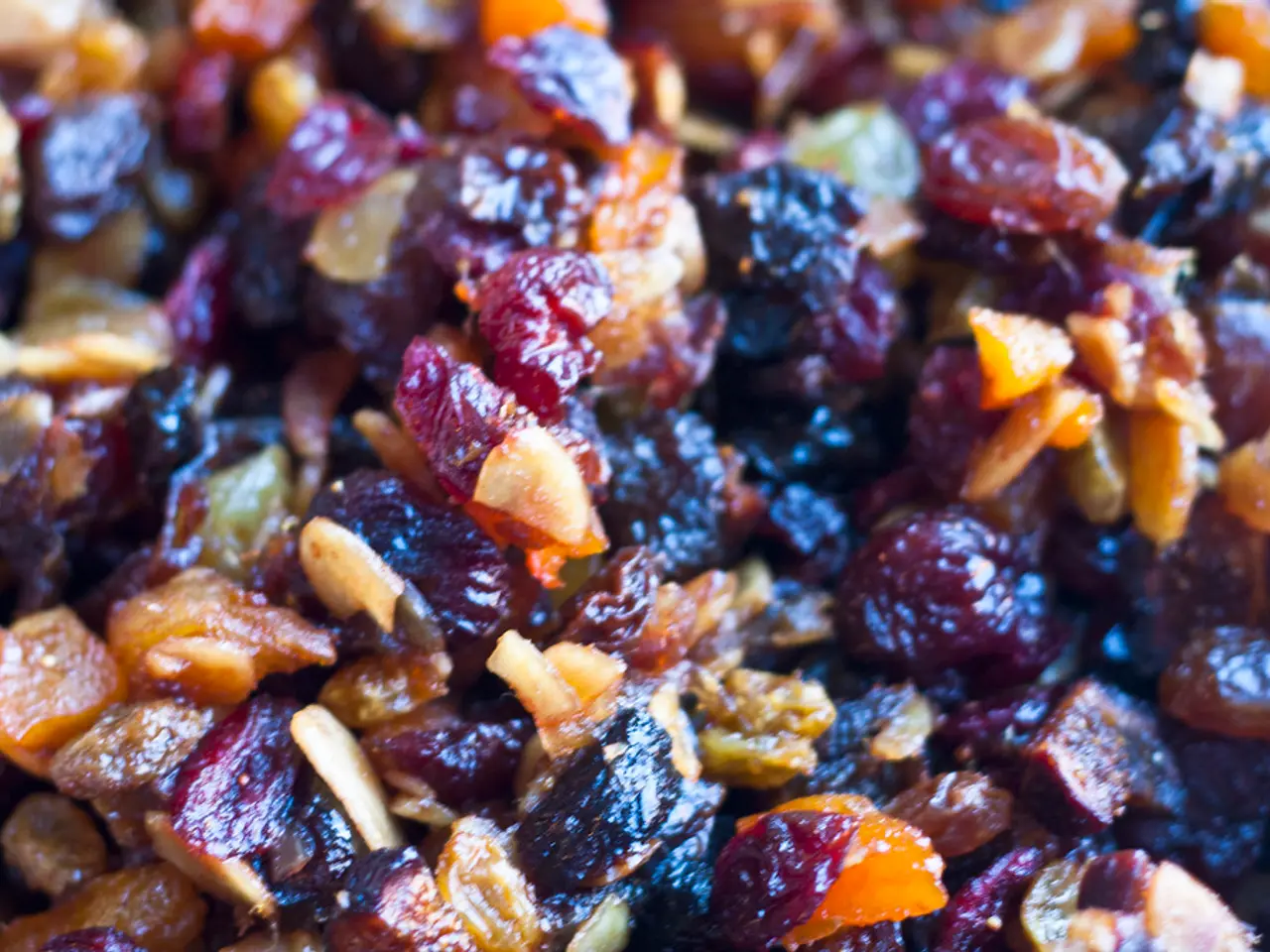Aromatic Piedmontese Dipping Sauce, Traditional Italian Recipe
Delicious and Nutritious: Discover the Wonders of Bagna Cauda
Bagna Cauda, a traditional Piedmontese dish, is a warm dip that offers a unique blend of flavors and nutritional benefits. This dish, which is similar to fondue, is perfect for those following a dairy-free or primal diet.
The recipe begins with heating 1/4 cup of ghee in a pan, preferably the one used for serving. Ghee, clarified butter, is rich in healthy fats and, if from grass-fed cows, adds the power of CLA, a cancer-fighting component, to the final dish.
To this melted ghee, minced garlic and chopped anchovy filets (4 oz) are added. Continuously whisking these ingredients together, they form a paste-like consistency. Anchovies not only add a strong, salty flavor but also contribute trace minerals like selenium, manganese, and calcium.
The dish is then enriched with 1 cup of extra virgin olive oil, pouring it in and stirring to combine. Bagna cauda, with its combination of omega-3 fatty acids and monounsaturated fat, is highly anti-inflammatory.
This warm dip is served with a variety of vegetables, such as cardoons, artichokes, celery, red peppers, and onions. These vegetables not only complement the strong flavors of the dip but also provide a host of nutritional benefits.
Cardoons, for instance, are high in fiber and contain antioxidants, supporting digestion. Peppers are rich in vitamin C and antioxidants, beneficial for immune health. Cabbage, on the other hand, contains vitamin K, vitamin C, and fiber, helping with inflammation and digestion.
Jerusalem artichokes are a good source of inulin, which promotes gut health and helps regulate blood sugar. Spring onions provide vitamin C, potassium, and flavonoids, supporting cardiovascular health. Radishes contain vitamin C, fiber, and compounds that aid liver detoxification.
Chicory is high in fiber and contains prebiotics that improve gut bacteria balance. Celery is low-calorie, rich in vitamins A and K, and antioxidants. Carrots are loaded with beta-carotene (vitamin A), important for vision and immune function.
Artichokes are high in fiber, antioxidants, and minerals that support liver health. Fennel contains fiber, vitamin C, and phytonutrients that aid digestion and reduce inflammation.
The high fat content of bagna cauda enables diners to better absorb the nutrients present in the vegetables, particularly beta carotene. This dish, therefore, provides a nutrient-rich, fiber-packed meal promoting digestive health, antioxidant protection, and essential vitamins and minerals.
As the dish is served, it's essential to stir Bagna Cauda due to anchovies and garlic settling at the bottom. The dish is traditionally served in late autumn and winter with fresh vegetables and sourdough bread.
Delight your taste buds and nourish your body with this robust and flavorful Bagna Cauda. Enjoy!
References:
- Bagna Cauda Recipe
- Nutritional Benefits of Traditional Bagna Cauda Vegetables
- Cardoons: Nutritional Profile and Health Benefits
- Peppers: Nutritional Profile and Health Benefits
- Cabbage: Nutritional Profile and Health Benefits
- Jerusalem Artichokes: Nutritional Profile and Health Benefits
- Spring Onions: Nutritional Profile and Health Benefits
- Radishes: Nutritional Profile and Health Benefits
- Chicory: Nutritional Profile and Health Benefits
- Celery: Nutritional Profile and Health Benefits
- Carrots: Nutritional Profile and Health Benefits
- Artichokes: Nutritional Profile and Health Benefits
- Fennel: Nutritional Profile and Health Benefits
- This Bagna Cauda recipe, a warm dairy-free dish similar to fondue, offers a unique blend of flavors and nutritional benefits, making it ideal for health-and-wellness enthusiasts.
- Ghee, clarified butter, added to the recipe, not only enhances the taste but also enriches the dish with healthy fats and CLA, a cancer-fighting component, from grass-fed cows.
- Anchovies, added to the dish, contribute trace minerals like selenium, manganese, and calcium, while providing a strong, salty flavor.
- The high fat content of bagna cauda, with its combination of omega-3 fatty acids and monounsaturated fat, serves as a nutrient-rich supplement for better absorption of the nutrients present in the accompanying vegetables.
- This lifestyle choice of serving Bagna Cauda with a variety of health-and-wellness promoting vegetables like cardoons, peppers, and fennel, not only complements the strong flavors of the dip but also offers numerous nutritional benefits.




